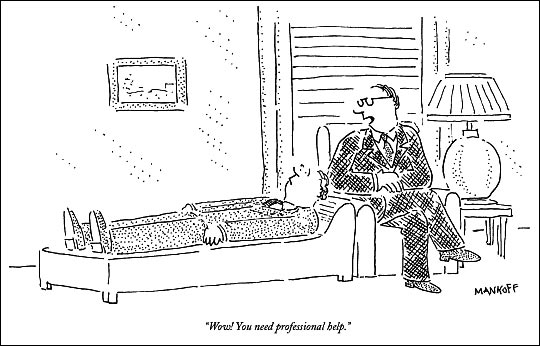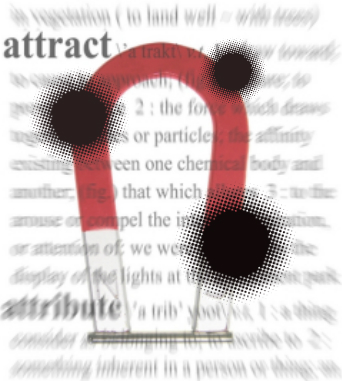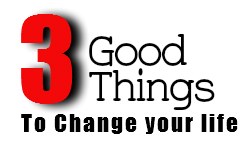
What’s the difference between life coaching and psychotherapy? This is a common question from new coaching students. And that’s a good thing; it suggests they really care about providing an ethically and legally sound service.
And if you’re thinking about hiring a life coach or therapist, you certainly want to know the difference. I hope this article is helpful to both coaches and clients and maybe even to therapists.
Fifteen to twenty years ago, when coaching was still new, life coaches were sometimes accused of “practicing therapy without a license”. But today coaching is well established as a separate, if confusingly similar, profession.
And it’s no surprise people confuse psychotherapy with coaching. Both professional services involve personal development and are usually delivered in one-to-one or small-group conversations. But beyond that, they’re practiced in a huge variety of ways and there is quite a bit of overlap. It’s worth noting also that definitions of therapy and coaching vary somewhat around the world.
It sometimes seems nobody agrees on the real distinctions between life coaching and psychotherapy.
For instance, last Friday I read a blog post that defines positive therapy, a type of psychotherapy that that uses positive psychology interventions, this way: “It’s about shifting from today’s accepted standard of ‘doing OK’ into the fullness of our human potential and flourishing.” That’s an excellent definition of coaching.
Which reminds me of something fellow coach, Barbra Sundquist, once said (paraphrased): The problem isn’t that coaches are doing therapy; the problem is that therapists are doing coaching!
So okay, enough with the problem. Let’s get to some answers.
Rather than just present my own opinions, I did a little research (Full disclosure: I will never-the-less present my opinions further down).
One of the best-known articles on coaching vs therapy is in Choice, a popular coaching magazine, written by Patrick Williams, who specializes in teaching coaching skills to therapists. This seems like a good place to start.
Williams’ distinctions between life coaching and therapy are very similar to what I was taught in coaching school fifteen years ago and I mostly agree.
To paraphrase Williams, therapy deals with dysfunction and trauma. A therapist diagnoses the problem and uses their expertise to promote healing. Emotions are seen as symptoms. Progress involves exploring the past and may be slow and painful. Meanwhile, coaching clients tend to be healthy and are a looking to upgrade good to great. Coaches don’t diagnose illnesses and healing is not the objective. Emotions are normal. The coach is an equal partner with the client; focus is on the present and future; and progress tends to be quick and enjoyable.
Pretty straight forward, huh? Only, increasingly, I’ve noticed therapists challenging these distinctions rather vociferously. Some say therapy clients can be healthy to begin with, that focus doesn’t have to be on the past and progress can be quick and even enjoyable. So are they doing therapy or coaching?
Some say it doesn’t matter.
There’s an amusing article on this topic in Psychology Today by Michael Bader. I say, “amusing”, because I enjoy folks who have the audacity to challenge the status quo. Bader’s subtitle is, “Coaches and therapists make too big a deal about their differences”.
I agree. Up to a point.
Bader says he chooses his tools according to what individual clients need. If they need to delve into the past, he goes there; if they’re ready to move ahead quickly, he assists. That to me sounds like someone who’s mastered his craft and can easily improvise, as needed. Whether you work with a therapist or a coach, choose a master, if you can.
Bader goes on to say the only true difference between therapists and coaches is that therapists understand why coaching works, but coaches don’t understand why therapy works. I’d challenge that. Well-trained coaches understand very well why either works.
Here’s my opinion on the real difference between life coaching and psychotherapy: it all boils down to responsibility. And that matters. A lot.
In nearly every country on the planet, governments hold psychotherapists responsible by requiring them to meet educational and licensing standards. This is appropriate, because people who seek therapy often are significantly distressed and may be somewhat impaired in their judgment. They seek the expertise of therapists to help “fix” whatever they perceive is wrong.
On the other hand, in virtually every country on the planet, governments do not require specific educational and licensing standards for coaches. This too is appropriate because coaches don’t fix anyone. We specifically work with clients who are healthy enough to take full responsibility for their lives and simply want a partner who, for a limited time, will assist them to make big changes. Coaches may be experts in transformation, but their clients are experts on their own lives. Putting clients in the driver’s seat is, itself, transformative.
A good therapist is an expert who plays his cards well. A good coach may also be an expert, but he lays all his cards on the table and invites the client to choose which ones to play.
This doesn’t mean coaches aren’t responsible for anything. Chiefly they are responsible inviting their clients to be great. They also have a responsibility to distinguish themselves from therapists, because they aren’t legally sanctioned to practice therapy. This is more challenging as therapists move closer to coaching.
And it’s not surprising that more therapists are taking a coach approach to therapy, because coaching has been tremendously successful.
But for the record, regardless how therapists define themselves, coaching does NOT focus on dysfunction, diagnosis, symptoms or the past. It’s about healthy people being their very best. Being responsible is way easier when you're at your best.
That said, an ethical coach will observe when a client needs therapy instead of, or in addition to, coaching and will recommend accordingly. In my opinion, a good therapist will observe when a client is ready to take greater responsibility for their own life and will recommend coaching, if that’s what’s best.
So if you’re thinking of working with a life coach or a psychotherapist, ask yourself how distressed you are currently and whether you want someone else to take responsibility for helping you progress, or do you want to be responsible for your own life and want a partner who facilitates your greatness.
If you’re thinking about becoming a life coach or psychotherapist, ask yourself: Do you want to be an expert who is responsible for your clients, or do you want to support clients who are responsible for themselves?
So what say you? Am I full of hogwash or do you agree that responsibility is the key difference between life coaching and psychotherapy? I’d especially like to hear from therapists and counselors who are studying at School of Coaching Mastery.
Thinking about becoming a coach? Check out these training programs:





 Positive Psychology
Positive Psychology







 I just watched a lecture by positive psychologist,
I just watched a lecture by positive psychologist, 





